Liberating Our Stories
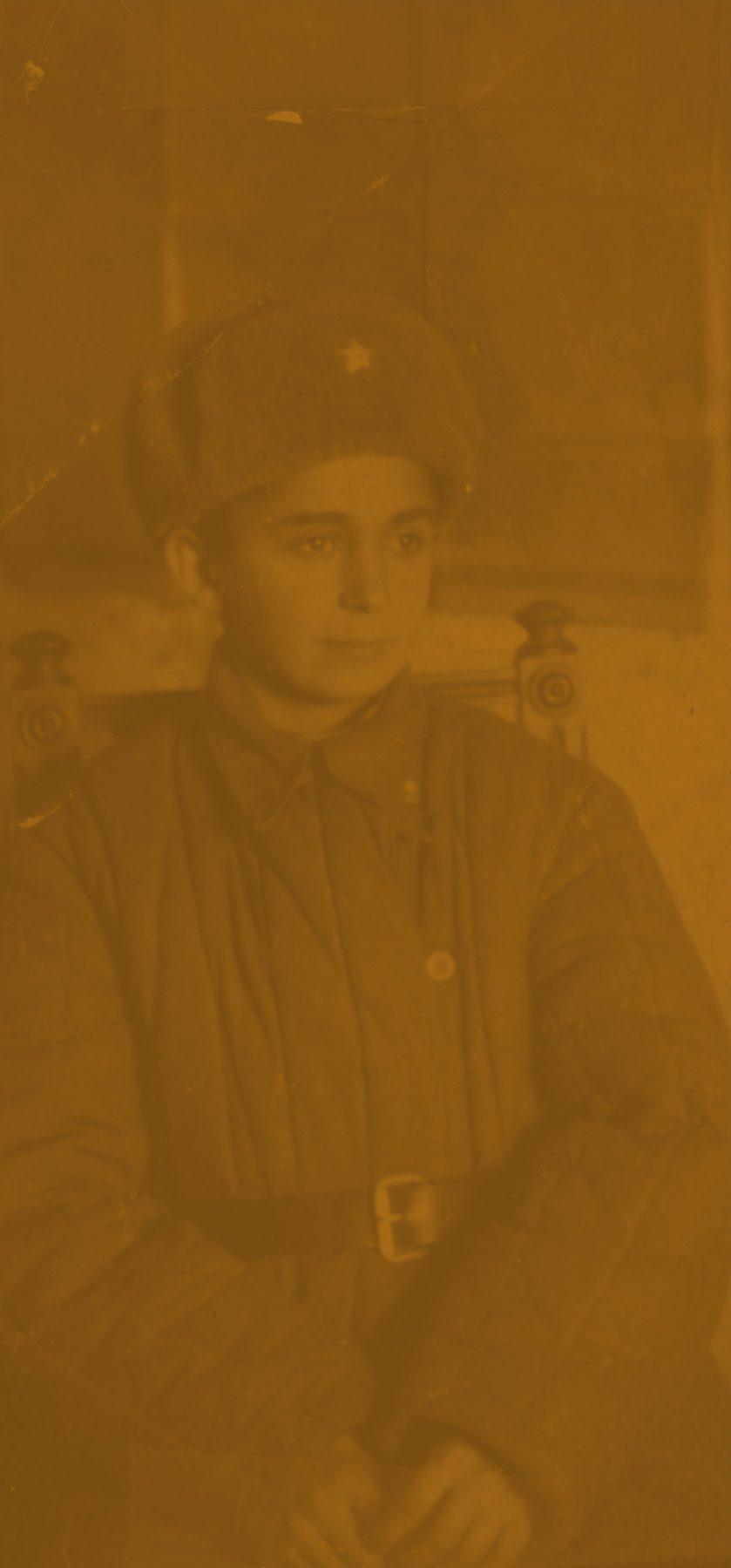
Alex Levin
Born
1932, Rokitno, Poland (now Ukraine)
Survived the War
In the Rokitno ghetto, in hiding and in the forests of Poland and Ukraine
Liberation Date
January 6, 1944, Rokitno, Poland (now Ukraine)
Liberators
Soviet Red Army
Alex Levin and his brother were separated from their parents and the rest of their family when they ran away from a mass shooting taking place just outside the Rokitno ghetto. They managed to hide for more than a year, taking refuge in the forests of Eastern Poland and Ukraine for part of that time. Alex and the others hiding in the forest suffered in the brutal winter weather and survived on what little food they could find. In December 1943, the Germans were retreating westward. What would happen to Alex when he ventured out of the woods?
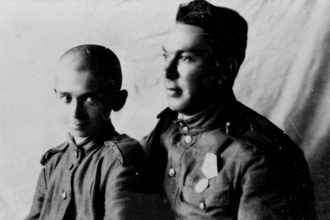
Alex with his liberator from the Soviet Red Army. Rokitno, Poland (now Ukraine), January 1944.
Finally, on January 6, 1944, the Red Army liberated Rokitno and began to pursue the Nazis to the west. Those of us who had survived were like wounded animals; we had a hard time adjusting to the idea that we’d have to leave the forest. Our daily sufferings had created a bond between us in the depths of the Polesie woods.
We had learned to live in the safety of the woods, but now we had to learn the horrible reality of our family and community’s fate. We left our dugout home in the woods and headed into the unknown.
The sergeant-major took me to Boris Markovich Krupkin, who was in charge of Red Army field hospital No. 2408 of the 13th Army of the First Ukrainian Front. A short, stout man with a wide forehead, Krupkin listened to the sergeant-major’s retelling of our story and ordered that I be taken to the army bathhouse immediately and washed and clothed with a suitable uniform until my own fitted uniform was ready. That’s how I became the so-called “son of the regiment,” a recruit of the field hospital and officially an orphan. I was eleven years old.
We…headed into the unknown.

Partisans in a snow-covered forest. Credit: Yad Vashem.
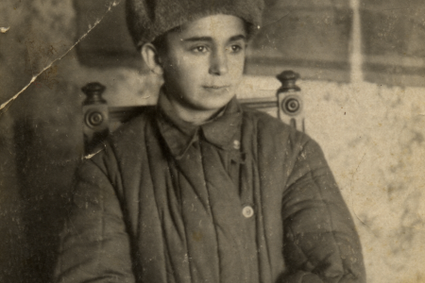
Alex as a “son of the regiment” in the Soviet Red Army. Sarny, Poland (now Ukraine), February 1944.
After he was liberated, Alex wanted to serve in the military and avenge the deaths of his family and friends. He went to military school and then served in the Soviet army. He experienced antisemitism in the army and became afraid of the Soviet dictatorship. Alex was discharged from the army in 1967 and left the Soviet Union in 1975 to reunite with his brother, Samuel, in Canada. For a long time Alex stayed silent about his experiences during the war. As he enjoyed a successful, stable life in Canada, Alex developed the courage to share his story.
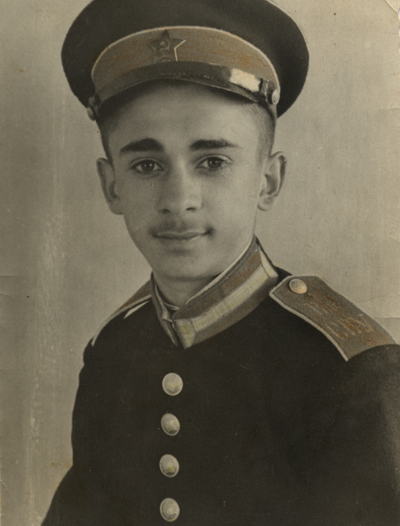
Alex as a new cadet in the Suvorov Military School. Voronezh, USSR, 1946.
I wished, as I had wished when I was only a boy, that I could do something to help others prevent a horror like the Holocaust from ever happening again. They say that those who ignore their own history are destined to relive it. I was haunted by the thought of this and now that I was essentially retired, I finally did something about it.
It took…courage to talk to strangers about what happened to me.
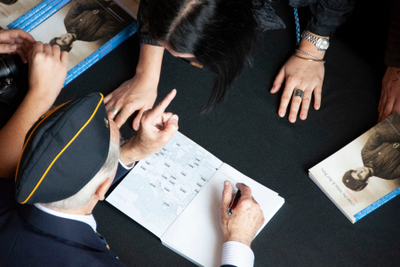
Alex sharing his story with students. Markham, 2014.
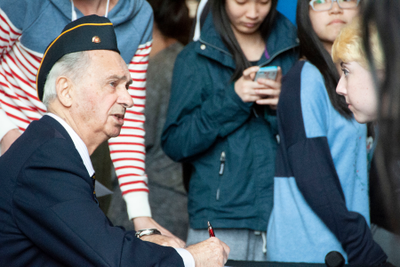
Alex sharing his story with students. Markham, 2014.
I began to work for Holocaust-education organizations, which meant breaking my longstanding silence about my own terrible experiences. This was quite difficult. It took effort and a certain kind of courage to talk to strangers about what happened to me during the war. Nevertheless, I became a public speaker, going into schools and other organizations to share and to inform. I knew it was important for the younger generation to learn about these events from someone with firsthand experience of the Holocaust, to hear not only about the horror but also about how a few of us had been able to survive.

